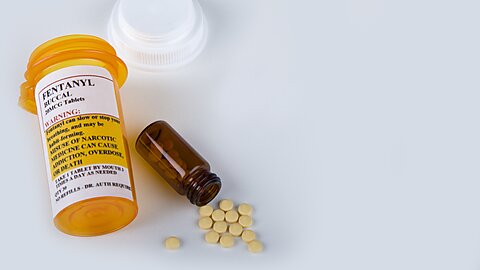
Jeffrey A. Singer
Governor Andy Beshear (D‑KY), a potential 2028 Democratic presidential candidate, told an audience of supporters yesterday that Democrats need to eschew “politically correct” language and “speak like humans.”
“When we start changing and sanitizing our language, things have less meaning. And I’ll give you an example that’s personal to me: in Kentucky, we are hit by the opioid crisis harder than just about any other state. Every Kentuckian, including myself, knows about a dozen people that are no longer with us…I didn’t lose one of my friends to substance use disorder. I lost them all to addiction…”
Governor Beshear’s remarks reflect a common misconception: that medical terminology like ‘substance use disorder’ is just politically correct rebranding. The term “substance use disorder” is not politically correct or “woke” language. It is the revised terminology adopted by the American Psychiatric Association (APA) in the fifth edition of its Diagnostic and Statistical Manual of Mental Disorders (DSM‑5).
As I explain in Chapter 6 of Your Body, Your Health Care, when I discuss the term “opioid use disorder” (OUD):
Misinformation regarding the difference between addiction and dependence animates many drug prohibitionists. People often conflate the two or use the two terms interchangeably, but they represent distinctly different phenomena. Dependency refers to the physiological adaptation to the drug to such an extent that abrupt cessation can cause a physical withdrawal reaction. Addiction is a behavioral disorder characterized by compulsive use despite negative consequences. People who are addicted to a substance still feel compelled to use the substance even when they are no longer physically dependent. However, addiction is a behavioral disorder that can also apply to activities. For example, the American Psychiatric Association’s (APA) Diagnostic and Statistical Manual of Mental Disorders lists gambling disorder as an addictive disorder.
Recognizing that drug abuse is more complex and nuanced than most politicians and media pundits realize, the APA updated the terminology related to issues involving both licit and illicit drug use. Substances to which people can develop substance use disorder include alcohol, barbiturates, benzodiazepines, cannabis, cocaine, methamphetamines, nicotine, opioids, and even caffeine.
Disorders can range from excessive use to physiological dependence to addiction. The DSM‑5 provides 11 criteria for clinicians to diagnose and assess the severity of addiction, based on how many criteria are met: two or three are considered mild, four or five are moderate, and six or more indicate severe substance use disorder.
But Governor Beshear would still be wrong if he had chosen the psychiatric term “opioid use disorder” to describe the “dozen people that are no longer with us.” Tragically, news reports are replete with stories of young people experimenting with drugs with friends at parties, or to help them relax after experiencing the social stresses of high school life. Many teens buy what they believe are prescription opioids on the black market, only to die from a fentanyl overdose because the pills are counterfeit.
Black market uncertainty isn’t limited to adolescents. Take the case of the musical artist Prince, who thought he purchased Vicodin (hydrocodone) from a dealer. The pills turned out to be counterfeit, and he died of a fentanyl overdose.
According to the Centers for Disease Control and Prevention, counterfeit pills caused nearly 5 percent of overdose deaths nationwide and nearly 15 percent of overdose deaths in western states in 2021. Decedents tended to be younger, more likely Hispanic or Latino, and often had a history of misusing prescription pain pills.
None of these tragic stories necessarily indicates that the victims had substance use disorder or addiction.
This highlights a key point: People who develop substance use disorders from legal drugs—like alcohol, cannabis (in states where it’s legal), nicotine, or caffeine—rarely die from overdoses. Overdose deaths are largely a consequence of black market drugs, where users can’t verify the purity, dosage, or even the identity of what they’re taking.
Governor Beshear, like most political leaders, is reluctant to face the elephant in the room: drug prohibition and the dangerous black market it creates are fueling the overdose crisis. That reluctance may stem from a fear that mentioning this uncomfortable truth is “politically incorrect.” But until we have that honest conversation, the crisis will only worsen.






